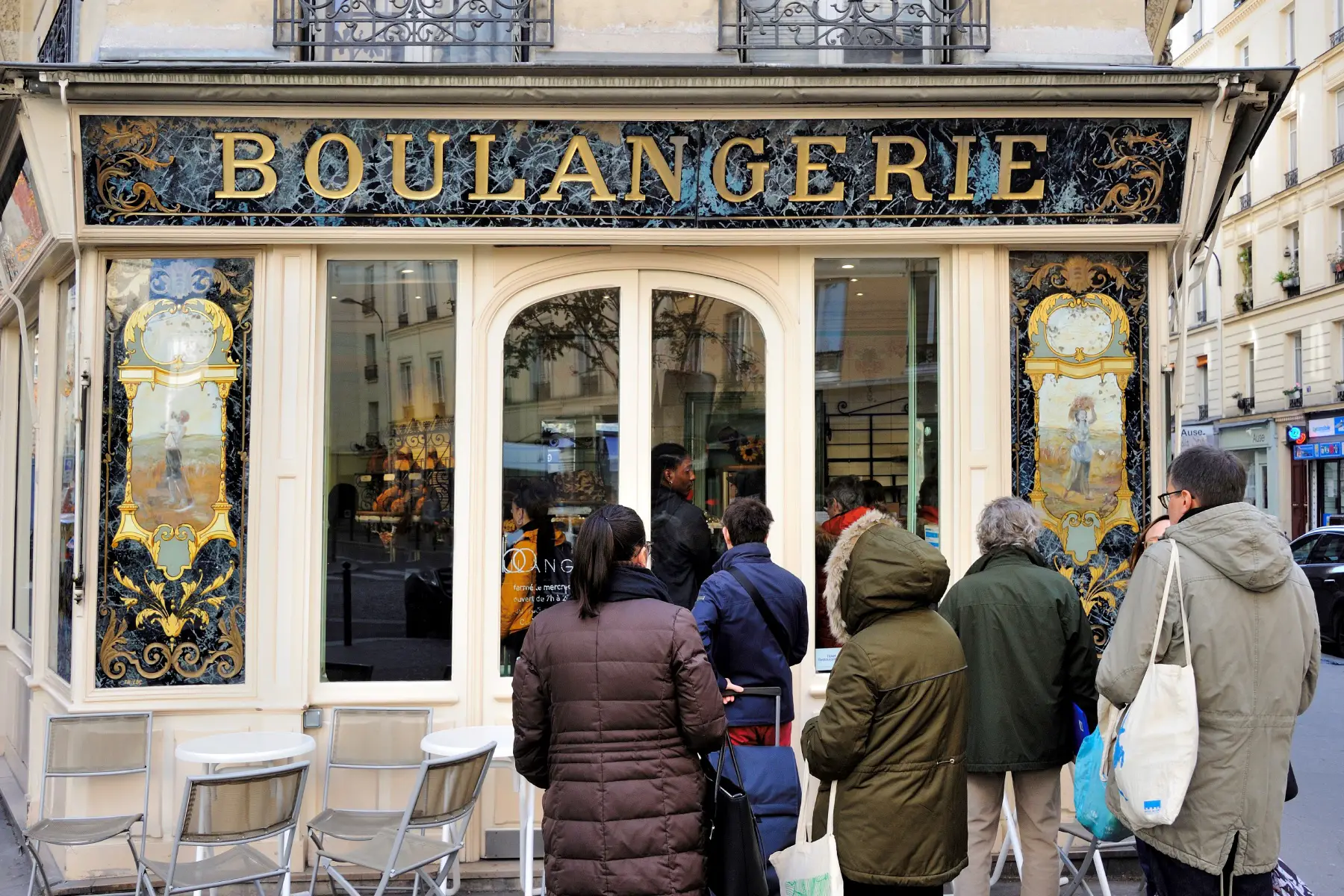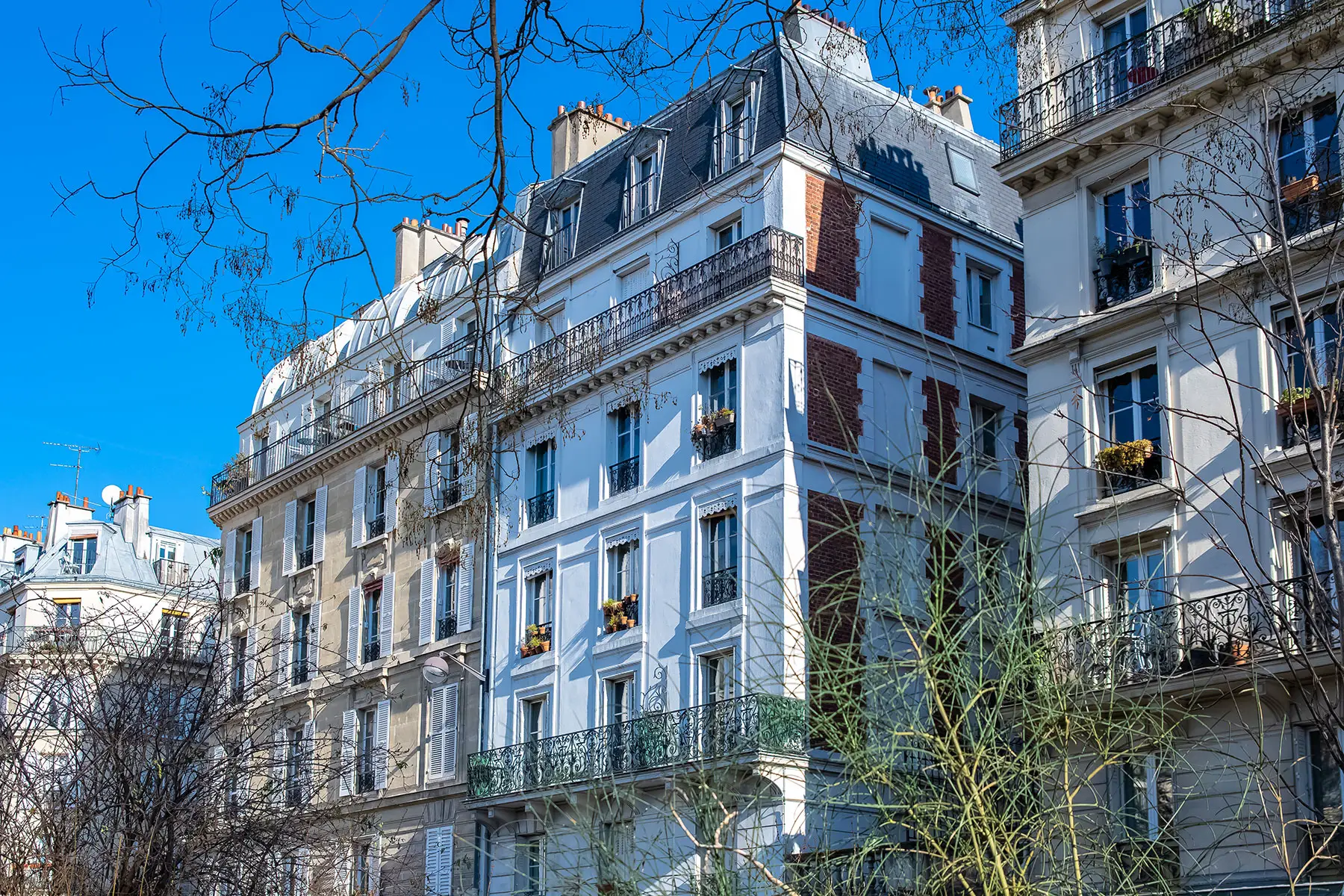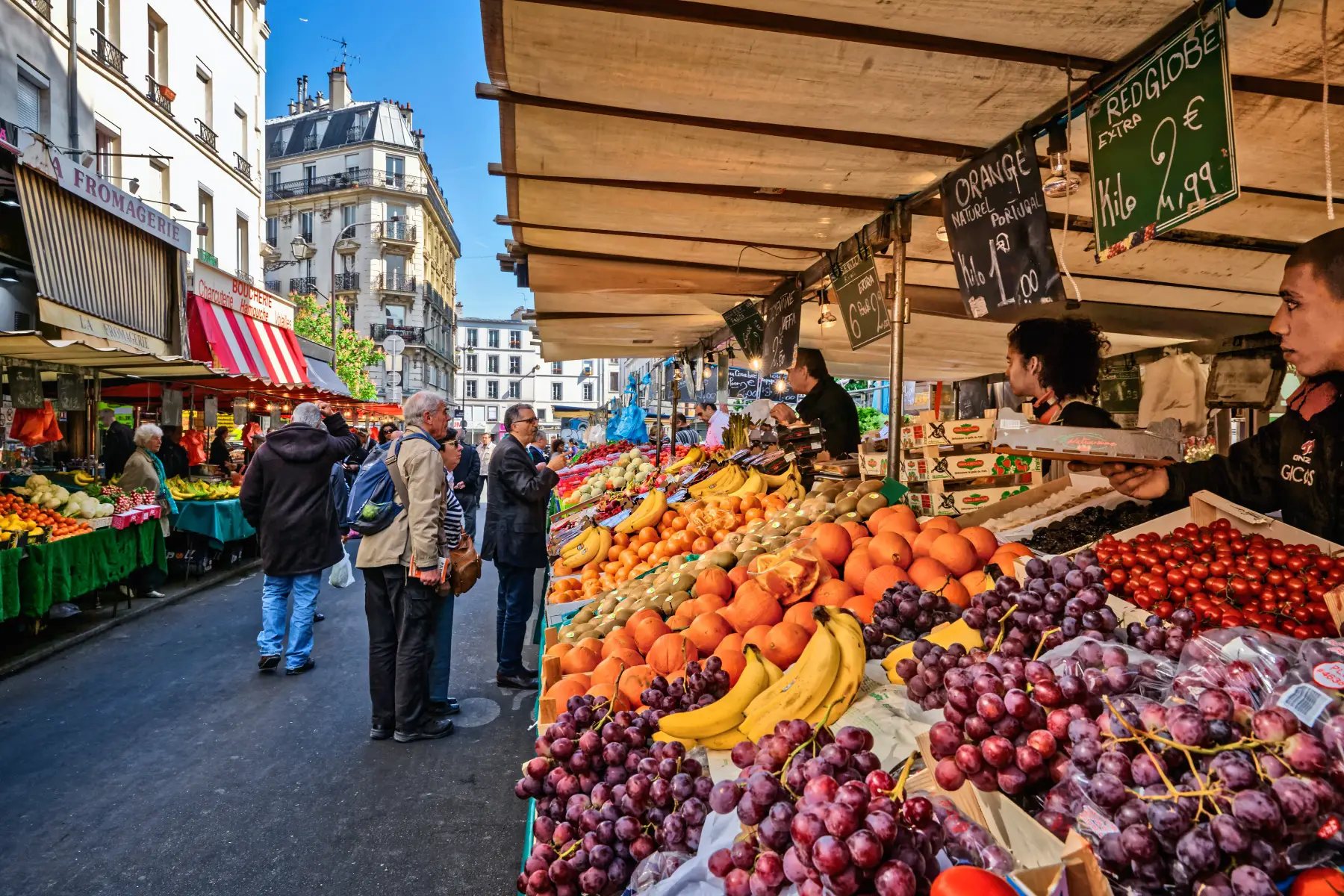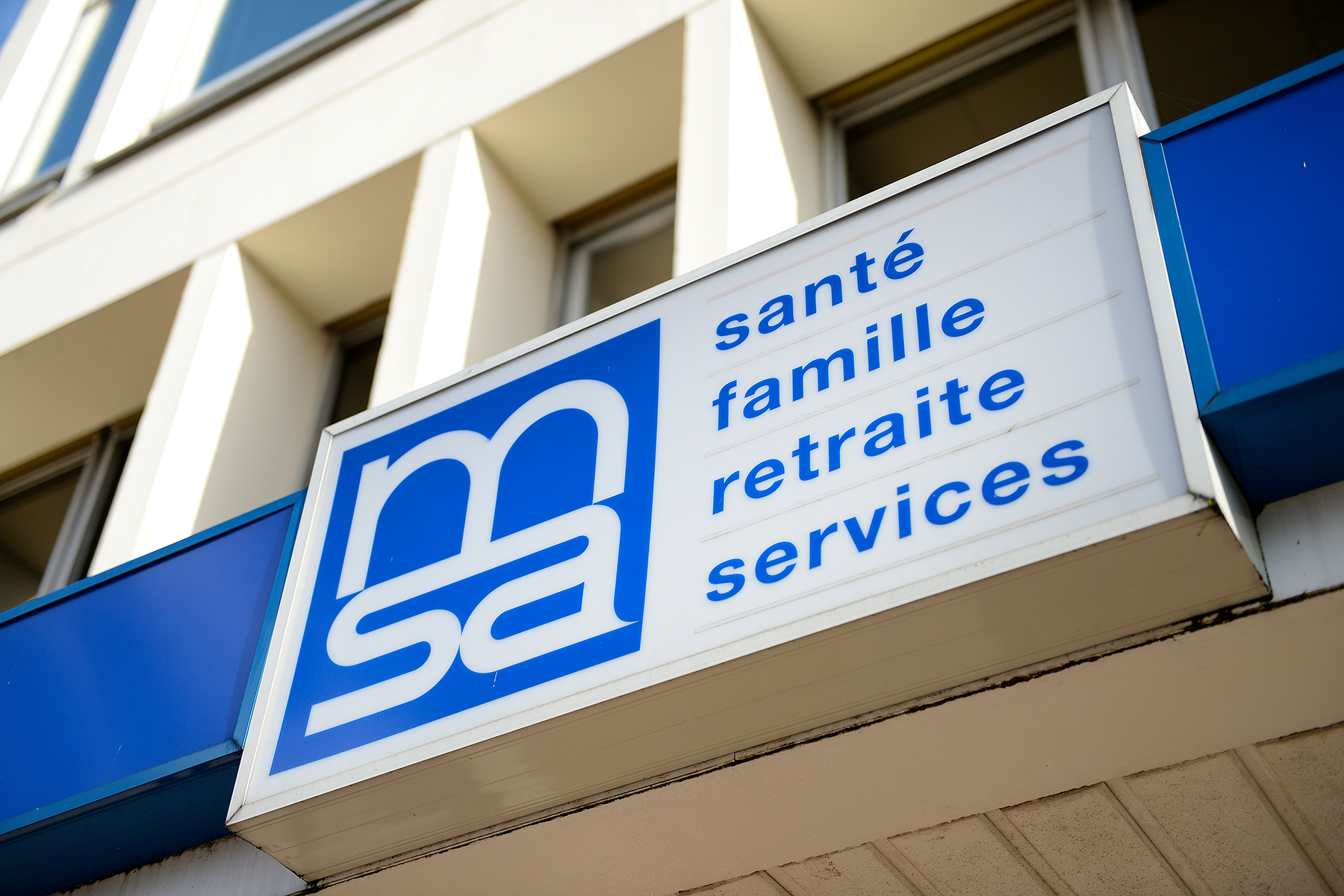The cost of living in France is higher than in neighboring Western European countries; however, Paris is one of the main reasons for this. The rest of the country, particularly the countryside and the south of France, has a lower cost of living.
This article covers how much you can expect to spend in your everyday life in France, including on housing, food, transport, and more. Read on for more information on the following:
Spotahome
Looking for somewhere to rent in France? Spotahome takes the hassle out of househunting by doing the hard work for you. Their online platform lets you find, view, and book rental properties all from the comfort of your own home. Take the stress out of househunting in France with Spotahome.
How does the French economy perform?
France boasts a highly developed economy, the world’s seventh-largest by nominal GDP. Services comprise around 70% of its economy, with industry making up 18.5% and agriculture 1.7%.
GDP varies in different regions of France. Île de France, with the highest GDP per capita (€63,000), is Europe’s second-largest regional economy. In contrast, other regions of Metropolitan France have a GDP per capita of between €28,000 (Languedoc-Roussillon) and €40,000 (Provence-Alpes-Côte-D’Azur).
Inflation and disposable income in France
France, like many European countries, experienced high inflation from 2022 to 2023, peaking at over 6% in April 2023. This dropped to 2.4% in 2024 and is forecast to decrease to 1.9% in 2025.
France’s GDP per capita is €33,750, slightly higher than the EU average of €29,280 (2023), but the median income is €24,719, above the EU average. When working in France, you usually receive your salary in 12 monthly payments, which are reviewed annually. The average wage in France is about €2,587 per month (2024).

Despite having a relatively high median income, 13.6% of the French population experiences material and social deprivation (2023), with one in ten people unable to afford heating and one in ten unable to afford to eat a meal containing protein every other day. In 2023, there were 330,000 homeless people, an increase of 130% compared to 2012.
The minimum wage in France is €11.88 per hour, or €1,801.80 for a 35-hour working week. According to the French Labor Code, the minimum wage must go up at the beginning of each year and rise when inflation exceeds 2%.
France compared to its neighbors
France shares a border with eight countries, three of which, Luxembourg, Belgium, and Germany, have a higher GDP per capita. Its GDP per capita, €35,260, is slightly higher than the EU average (€31,030). Its GDP per capita is higher than neighboring Italy and Spain.
Thanks to its geographical location, France is a gateway between northern and southern Europe. It is also home to excellent transport networks with neighboring countries and major ports, which connect it to regional and global markets. France’s main exports are aeronautic and space equipment, perfume and cosmetics, and agricultural products.
The cost of living in France in 2025
According to the latest government statistics (2022), the average French household spends €28,800 per year on private consumption (around €2,400 per month). When accounting for inflation, an estimate for 2025 would be about €2,645.
The Ile-de-France region, where Paris is situated, has the highest cost of living, about 7% higher than the rest of the country for food and drink and around 40% higher for rents.
Read on for an overview of daily living expenses in France.
The price of groceries in France in 2025
There are many factors affecting grocery spending. For example, where you live, where you shop, and what types of food you buy.

French households spend on average, around €300 on food a month including groceries and eating out, however, this varies depending on the city. Here are some examples of how much food items might cost you in France*:
| Product | Price range | Product | Price range |
| Apples (1 kilo) | €1.00–5.90 | Potatoes (1 kilo) | €0.30–9.32 |
| Bread (1 loaf) | €0.75–3.75 | Regular milk (1 liter) | €0.75–2.16 |
| Cheese (1 kilo) | €7.85–45.75 | Rice (1 kilo) | €1.23–22.82 |
| Coffee (1 kilo) | €6.76–26.13 | Tea (per bag) | €0.03–0.28 |
| Eggs (12) | €2.20–6.25 | Tomatoes (1 kilo) | €2.19–6.25 |
| Orange juice (1 liter) | €0.99–5.70 | Water (1 liter) | €0.12–2.07 |
Hygiene and household products
See below for how much you’ll spend on household products such as soap, toilet paper, and cleaning products*:
| Product | Price range | Product | Price range |
| All-purpose cleaner (1 liter) | €0.70–9.30 | Shampoo (1 liter) | €0.79–10.97 |
| Deodorant (150 ml) | €2.79–10.09 | Soap (1 liter) | €1.67–24.00 |
| Dish soap (1 liter) | €0.85–9.64 | Tampons (per tampon) | €0.05–0.45 |
| Garbage bags (per bag) | €0.04–1.00 | Toilet paper (per roll) | €0.19–0.81 |
| Laundry detergent (1liter) | €0.97–9.99 | Toothpaste (75 ml) | €0.69–3.28 |
Beer, wine, and liquor
France is well-known for its excellent wines. And no wonder, as the second-largest producer of wines in the world. Just under 2% of total household expenditure goes on alcoholic beverages, which is in line with the European Union average.
You can expect to spend the following on different alcoholic drinks in France:
| Alcoholic drinks | Price range |
| Pilsner in a local bar or restaurant | €4.00–8.00 |
| Craft beer | €4.00–8.00 |
| Glass of wine | €4.50–20.00 |
| Supermarket beer | €0.49–7.69 |
| Supermarket bottle of wine | €1.39–50.00 |
| Bottle of liquor (whiskey, vodka) | €13+ per liter |
2025 housing costs in France
Your cost of living will likely vary depending on whether you buy your home or rent in France. Prices for both can differ widely from city to city.
Rental costs in France
French housing is notoriously expensive if you go for the typical metropolitan apartment. When you go from a one-bedroom apartment to a place with multiple bedrooms, the prices rise even more. Residents can reduce their cost of living in Paris, however, by moving to a less metropolitan area or living in the Parisian suburbs.

The median rent in Paris is €1044 in the city center or €800 in the suburbs (2023). Numbeo suggests that a one-bedroom apartment in central Paris can cost up to €2,000 a month or more than double that if you want a three-bedroom apartment.
Lyon is much cheaper in terms of accommodation, with prices at around €700–€1,250 per month for a central one-bedroom apartment or €1,200–€3,000 for a three-bedroom apartment. Marseille’s prices are similar to Lyon’s.
Places to find housing and temporary accommodation online include:
Property prices in France
Several fees and taxes apply to purchasing a home. Just as with renting, prices vary across the country.
In January 2025, average per square meter property prices in different French cities were as follows:
- Paris: €10,856
- Lyon: €4,987
- Marseille: €3,926
Prices vary across different areas of the city – on the whole, a centrally located apartment will cost you more than one in a less popular suburb.
Utility bills in France: gas, water, and electricity
Utility bills in France can be split into gas, electricity, water, and garbage collection. For an in-depth overview of how the system works, read our article about utilities in France.
Electricity costs on average €236/MWh (2023), and if an average household uses 5,344 kWh of electricity per year, you can expect to spend around €1,300 per year on these bills. French households pay less than the European Union (EU) average.
Many energy providers cite the Energy Regulation Commision (Commission de régulation de l’energie) figure of an average annual gas consumption of 10,000–12,000 kWh. With household gas prices of €115/MWh PCS, this gives an average yearly energy bill of around €1,150 to €1,380. These prices are in line with the EU average.

The French National Energy Mediator (Médiateur national de l’energie) provides a comparison tool for different utility providers. Of course, costs depend on how you heat your house, whether you use renewable energy, and how much you consume.
Healthcare costs in France
One positive aspect of the cost of living in France is subsidized healthcare. Everyone living in France for longer than three months is eligible for state health insurance, including internationals. This insurance, Protection Universelle Maladie (PUMa), is funded by the French social security system, meaning about 8% of most employees’ pay packets go towards it, with another 13% paid by employers.
Around 70% of medical costs are covered, but in some cases, such as cancer, diabetes, or having a baby in France, 100% of costs are covered by the French healthcare system. Those who want 100% coverage can sign up for private health insurance to cover the remainder.
Telecommunications prices in France
The cost of internet in France is also relative, with average packages costing about €40 per month. However, it’s possible to find broadband deals for under €20. Since 2022, taxpayers have no longer had to pay for an annual television license to access public broadcasting.
Cost of clothing and footwear
Costs for clothing in France are in line with neighboring European countries. When it comes to high street brands, you’ll likely spend around €38 for a summer dress from a chain store and about €90 for a pair of good quality jeans.

France is home to an array of famous fashion designers. If you opt to buy designer clothing, this will cost significantly more.
Transport costs in France
According to Statista’s forecast for 2025, the average person will spend around €273 per month on transport.
Public transport
Though the cost of living in Paris is higher than that of rural France, one of the benefits of living in a well-developed, metropolitan city is the extensive public transport system. Expats living in Paris and most other major cities in France may not need a car at all.
Metro systems and other public transportation in French cities are quite good and not particularly expensive. A single ticket in the Île-de-France region costs €2.50, whether you’re traveling by suburban train, RER (rapid transit system), metro, or express tram. Otherwise, an unlimited Navigo pass costs €78.60–88.80 per month and lets you travel as much as you like in selected zones.
Some employers pay subsidies for transport costs if you use public transportation to get to and from work.
Driving and vehicle costs
In rural areas, public transport is not as well developed. While owning a car can be costly in France, the 2022 Car Cost Index suggests it is less expensive than in neighboring countries.
As well as the costs of a driving license and buying a car in France, you’ll also need to account for:
- Car insurance – the average vehicle owner paid €156 for mandatory third-party liability insurance or €534 for a comprehensive policy.
- Vehicle registration – depends on the address where your vehicle is registered and can be between €27 and €60.
- Fuel costs – around €1.80 per liter.
- Maintenance – crowdsourced data suggests the average maintenance costs of a car in France are around €361 per year.
How much do leisure activities cost in France?
There’s plenty to do in France. Whether you’re into festivals, castles, or attractive scenery, leisure costs are something to keep in mind.
Movie theaters and cinemas
A cinema ticket in France costs €12 on average. However, some cinema chains offer subscriptions where you can pay a set amount (usually around €23) per month to watch as many films as you want in their branches. Independent cinemas also sometimes offer cheaper day tickets for as little as €7.
Restaurants
France is synonymous with amazing cuisine. Some of the best chefs in the world are French or were trained in France, and there is a huge range of delicious food in France.
A meal for two at a good restaurant generally costs €40–90, which includes three courses. As an international comparison, a McDonald’s meal costs about €12.
Sports
If you’re a fitness lover, a gym membership will set you back around €33 per month. Meanwhile, you’ll spend €90 on average for a pair of mid-range running shoes.
The costs of French childcare and education
Childcare
Crèches are typically the first point for people looking for childcare in France. How much you pay for a public crèche depends on your income and family situation.
You can also find private daycare centers, although they will push up your cost of living. Once a child is two years old, they are eligible for free nursery schooling up to the age of six.
If you employ a childminder, you must pay a minimum of €3.64 per hour, an extra 10% for public holidays worked, a maintenance allowance of at least €3.80 per child per day, a meal allowance, and compensation for driving.
Children’s education
Something that France does extremely well is public education. Every child from the ages of three to 16 must go to school, and the state pays for everything except some school supplies and field trips. The French education system is rigorous, but that can work well for many children.
However, public schools in France are not typically bilingual. Parents looking for international schools in France will thus have to calculate a higher cost of living, although some employers cover education costs in expat relocation packages.

If parents opt for an international school in France, their children can be taught in a familiar language and follow a curriculum similar to their home country.
French private schools are sometimes partially funded by the state and may follow the French curriculum. Schools that are not subsidized, on the other hand, are free to follow their own curricula.
The cost of annual private school fees varies considerably but starts at around €5,000 per year.
French tuition fees
Universities in France, if they are state universities, are very reasonably priced, especially compared to the tuition you would pay in the United States or the United Kingdom. French, European Union, European Economic Area, Andorran, and Swiss students pay the following tuition fees for the 2024/25 academic year:
- €175 per year for a bachelor’s (licence) degree
- €250 per year for a master’s degree
- €618 per year in a school of engineering
- €391 per year for a doctorate
In addition, there are several cases in which you may pay these fees even if you are not a European student. For example, if you are a resident of Quebec or a long-term French resident, you might be entitled to lower tuition fees.
Those from outside the EU/EEA must pay €2,850 for licence and €3,879 for a master’s degree. Private universities charge €6,000 to €18,000 per year.
How do prices in France compare to the rest of the world?
Although France has a relatively high cost of living, particularly in major cities, it also boasts one of the highest standards of living in the world. It ranks highly in many OECD Better Life indicators, and three of its cities (Toulouse, Paris, and Lyon) appear in the top 50 of Mercer’s 2024 quality of living ranking.

The country also has a strong sense of community. 94% of people believe they have someone they can rely on in a time of need. French people tend to be more civically engaged, meaning they are more involved in what happens in their country.
Cost of living in Paris
Paris attracts expats for several reasons. Some want to live the romanticized Parisian lifestyle, while others head there for a better variety of jobs, as it’s home to multiple international companies.
In Mercer’s 2024 Cost of Living Report, Paris (29th) ranked more expensive than Brussels, Berlin, and Milan but cheaper than Vienna, Copenhagen, and London.
The estimated cost of living in Paris (without rent) is:
- 32% cheaper than New York
- 11% cheaper than London
- 46% more expensive than Lisbon
- 129% more expensive than Rabat
- 161% more expensive than Algiers
- 210% more expensive than Delhi
Cost of living in Marseille
Marseille, France’s second-largest city, is home to an international port. Given its location, it is perfect for global business and enjoying the relaxed lifestyle of a coastal resort city.
Compared to Paris’s living costs, the cost of living in Marseille is more affordable.
The cost of living in Marseille (without rent) is:
- 40% cheaper than New York
- 22% cheaper than London
- 28% more expensive than Lisbon
- 100% more expensive than Rabat
- 128% more expensive than Algiers
- 171% more expensive than Delhi
Cost of living in Lyon
Lyon is the third-largest city in France, and it’s a gourmet haven. It is also an excellent city for living and working, as it’s a hub for banking, pharmaceuticals, software, and other industries.
Lyon is also on Mercer’s cost of living report and ranked 75th in 2024.
The cost of living in Lyon (without rent) is:
- 37% cheaper than New York
- 17% cheaper than London
- 36% more expensive than Lisbon
- 112% more expensive than Rabat
- 142% more expensive than Algiers
- 187% more expensive than Delhi
Assistance with living costs in France
There are several types of social security benefits available in France, which you can read about in the European Commission’s guide to Employment, Social Affairs & Inclusion. These include:
- Family allowances (Allocations familiales)
- Maternity and paternity allowances
- Sickness benefits
- Care benefits
- Disability pension
- Old-age pension
- Surviving spouse pension
- Income support
- Unemployment
When you have a child, you are entitled to a child benefit (La Prestation d’accueil du jeune enfant – Paje) for the first three years after birth or up to three years until the child is 20 in case of adoption. You are eligible for a family allowance when you have two children. This starts at €141.99 per month for two children, €323.91 for three children, and €505.82 for four.
The conditions for most benefits require that you reside in France and have worked and paid social security contributions there. Check with each benefit to make sure, and read about social security in France for more details.
Tips for saving money in France
Affordability depends on your household income and size – for example, a professional couple may have more disposable income than a family of four. Here are some practical ways to cut costs while living in France:
- Try shopping at local markets – Traditional markets (marchés) often have fresh produce and other essentials at lower prices than supermarkets. Arriving just before closing can get you even better deals, as vendors often discount remaining stock.
- Check promotions and plan meals ahead – Use supermarket flyers (catalogues promos) to compare discounts and plan your meals according to what’s on sale. French supermarkets often offer deals and loyalty card discounts.
- Dine out strategically – you can often save money by ordering the daily special (plat du jour) in a restaurant. Lunch menus also tend to be cheaper than dinner.
- Use public transport and shared mobility – France has an excellent public transport network and monthly and annual transport passes, such as Navigo in Paris and Técély in Lyon, can help you save. Many cities also offer bike-sharing services like Velib’ and free park-and-ride for commuters.
- Shop second-hand – France has a strong second-hand shopping culture, with thrift stores like Emmaüs and Ding Fring. There are also plenty of deals to be found on online platforms like Le Bon Coin and Vinted.
- Reduce energy costs – Save on heating and electricity by insulating your home, using energy-efficient appliances, and taking advantage of off-peak electricity rates (heures creuses).
- Compare contracts regularly – check and compare your energy, internet, and mobile phone plans to make sure you’re getting the best deal. It’s also worth checking comparison websites like Que Choisir to find the best value rates.
Useful resources
- INSEE (National Institute of Statistics and Economic Studies) – statistics about the French economy and social issues
- European Commission – pages about employment, social affairs, and inclusion in France
- Welcome to France – instructions for registering for social security










